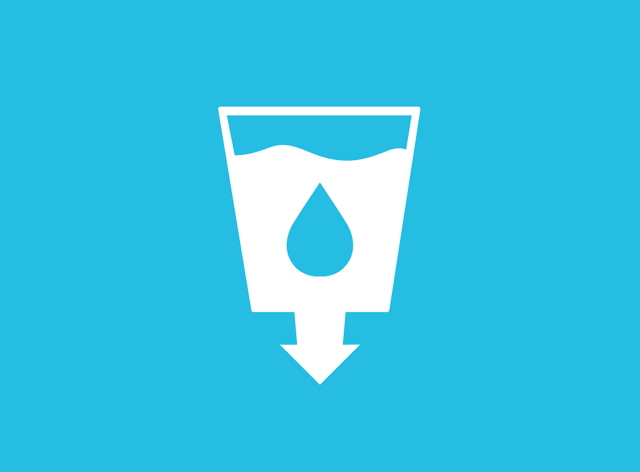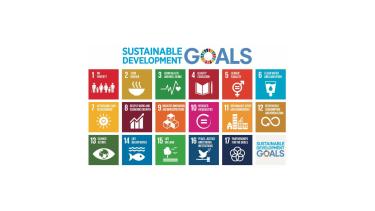On this page, you'll find a report on all the actions and activities initiated at the University of Namur in connection with United Nations Sustainable Development Goal #6: "Clean water and sanitation."
Social impact and actions
Corporate initiatives
A new research partnership with the University of Lorraine
The URBE and UR AFPA are both experts in aquaculture. The aim of the project is to understand the effects of domestication on the reproduction and welfare of new species in aquaculture. The chosen model is the Zebra Fish. The fish will arrive from Bangladesh and will be in the wild. But we don't eat Zebra Fish, do we? So, why was this model chosen? First of all, because their genome is well known and a lot of bibliographic resources are available. Then, it is a species which reproduces quickly (a few months are enough to obtain a new generation). This enables to quickly analyze its resistance to stress and its reproduction in captivity. It should also be noted that the study plans to let the fish develop without making any selection, as is generally the case in farms. In this way, we can see whether domestication syndromes appear naturally, including phenotypic changes (appearance, morphology, levels of the stress hormone called cortisol, etc.).
Sustainable purchasing and consumption
Several initiatives have been put in place to reduce water consumption in the institution:
- maintenance: systematic detection of water leaks and analysis of distribution water circulating in pipes
- toilets:
- flushes with water-saving devices and automatic flushing of urinals (an action that now saves 3000 cubic meters of water per year)
- rainwater flushes in the new Faculty of Science
- laboratories: cooling system for scientific machines using closed-circuit recycled water rather than waste city water
- efficient sewage system
The University of Namur also provides free drinking water on campus via water fountains. Find out more about the newsroom via this link and this link.
Activities organized by the CDS
- CDS exhibition - the health of our rivers
An exhibition organized by the Confluent des Savoirs (CDS) to make research and society meet around a project called "DIADeM". Several French-speaking Walloon partners from universities, laboratories or water actors have worked together to develop common strategies to be able to diagnose the water quality of our rivers.
Driven by the desire to build bridges between science and society, the exhibition "Santé de nos rivières: en péril?" was developed. More info here
- Mercredi des Savoirs: river pollution
Wednesday afternoon workshops to discover science and technology for children aged 9 to 12. Learn more
Collaborations and partnerships
CoVWWSurv - National surveillance of SARS-CoV-2 and its variants in sewage
Together with UAntwerp and Ughent, the University of Namur takes part in the COVWWSURV project. It concerns the implementation of a surveillance system for coronavirus (SARS-CoV-2) through the analysis of sewage, the objective being the early detection of any significant evolution of the circulation of the virus in the population. This surveillance system will cover approximately 45% of the Belgian population, by means of the analysis of the sewage entering the wastewater treatment plant, at a rate of two times per week.
River cleanup Operation
The University of Namur took part to the river cleanup operation organized by the "Capitainerie" of Jambes.
Research institutes
Institute of Life, Earth and Environment (ILEE)
Research at the Institute of Life, Earth and Environment (ILEE) fits in with several of the Sustainable Development Goals (SDGs) defined by the United Nations. For example, the impact of multiple stress factors and/or pollutants on organisms as well as on ecosystems is studied and solutions are sought to strengthen their resistance and resilience and/or limit harmful products.
In addition, by prospecting and characterising geological resources and integrating human use over the centuries, from Antiquity to the current Anthropocene, ILEE is contributing to better sustainable management of natural resources, including architecture and art. The transition to more sustainable agriculture is being investigated through the concept of ecosystem services, using mapping, modelling and integrated assessment. The consequences of climate change on migrations and interactions between the various agents responsible for the transmission of vector-borne and zoonotic diseases are also at the heart of ILEE's research.
Spin-off
e-biom
A UNamur spin-off created with the support of the SPW Research FIRST Spin-off programme, e-biom combines an analysis laboratory and a scientific consultancy dedicated to biodiversity conservation, ecology and environmental protection. The aim is to support public and private players in integrating biodiversity considerations into all projects.
TRAQUA
A UNamur spin-off created with the support of the SPW Research FIRST Spin-off programme TRAQUA is a consultancy firm specialised in water flow analysis and monitoring techniques. They offer technological solutions and made-to-measure expertise for all hydrogeological or hydrological problems (analysis, diagnosis, monitoring).
In the press
Chemical pollution of water | Frédéric Silvestre (UNamur - Institut ILEE) and Krishna Das (ULiège) explained the fundamental issues involved in ecotoxicology and the effects on fauna, flora and mankind in the "Les Eclaireurs" program on 01/10/2022 (RTBF/auvio). Read the article "Chemical pollution: no water is spared!" by RTBF.
La transition écologique en Province de Namur | Amaël Poulain (UNamur, TRAQUA spin-off) insists on the urgent water resource management challenges of the future in the "On saura tout" broadcast on 14/09/2022(LN24).
A new tool developed by UNamur to trace the path of groundwater | Amaël Poulain (UNamur, TRAQUA spin-off). The first tool developed by the University of Namur start-up Traqua can be used to determine the path taken by water underground. Previously, hydrogeologists had to disperse a fluorescent powder in the water and then track it to find out where it was going. Today, there's no need to visually follow this fluorescent trail. Probes take care of that. RTBF (24/06/2021)
Research
Discover all publications related to the sustainable development goal "Clean water and sanitation" on the UNamur research portal.

